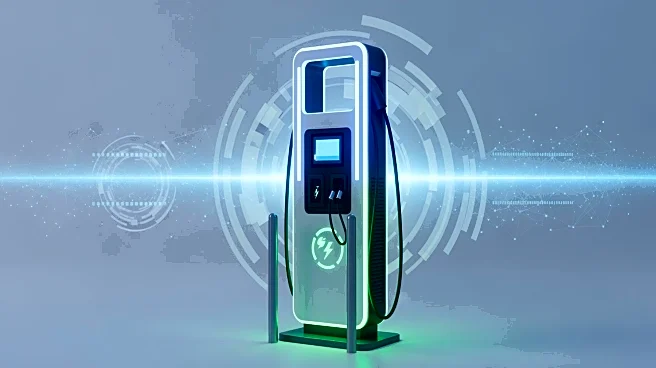What's Happening?
Schneider Electric is focusing on electric vehicles (EVs) as a central component of its energy transition strategy. The company's Chief Sustainability Officer, Esther Finidori, describes the sustainability
journey as a 'marathon without a finish line.' Schneider Electric has been recognized as a leader in sustainability, ranking first in Sustainability Magazine's Top 250 World's Most Sustainable Companies. The company is committed to helping customers transition to renewable energy through electrification and efficiency. This strategy involves significant research and development to create the necessary infrastructure and digital capabilities to support a world powered entirely by renewable energy.
Why It's Important?
The emphasis on electric vehicles by Schneider Electric highlights the growing importance of sustainable practices in the industrial sector. As a leader in sustainability, Schneider Electric's initiatives could influence other companies to adopt similar strategies, potentially accelerating the global shift towards renewable energy. The focus on electrification and efficiency aligns with broader environmental goals, such as reducing carbon emissions and combating climate change. This approach not only benefits the environment but also positions Schneider Electric as a key player in the evolving energy landscape, potentially leading to increased market share and influence.
What's Next?
Schneider Electric plans to continue expanding its partnerships across the value chain to enhance its sustainability efforts. The company is likely to invest further in research and development to innovate new technologies that support the energy transition. As the demand for renewable energy solutions grows, Schneider Electric may explore new markets and opportunities to collaborate with other industry leaders. The company's ongoing commitment to sustainability could lead to further recognition and accolades, reinforcing its position as a leader in the field.
Beyond the Headlines
The focus on sustainability by Schneider Electric reflects a broader cultural shift towards environmental responsibility in the corporate world. This trend may lead to increased regulatory scrutiny and consumer demand for sustainable products and practices. Companies that fail to adapt to these changes risk falling behind in a competitive market. Schneider Electric's proactive approach serves as a model for other businesses seeking to integrate sustainability into their operations, potentially driving systemic change across industries.











